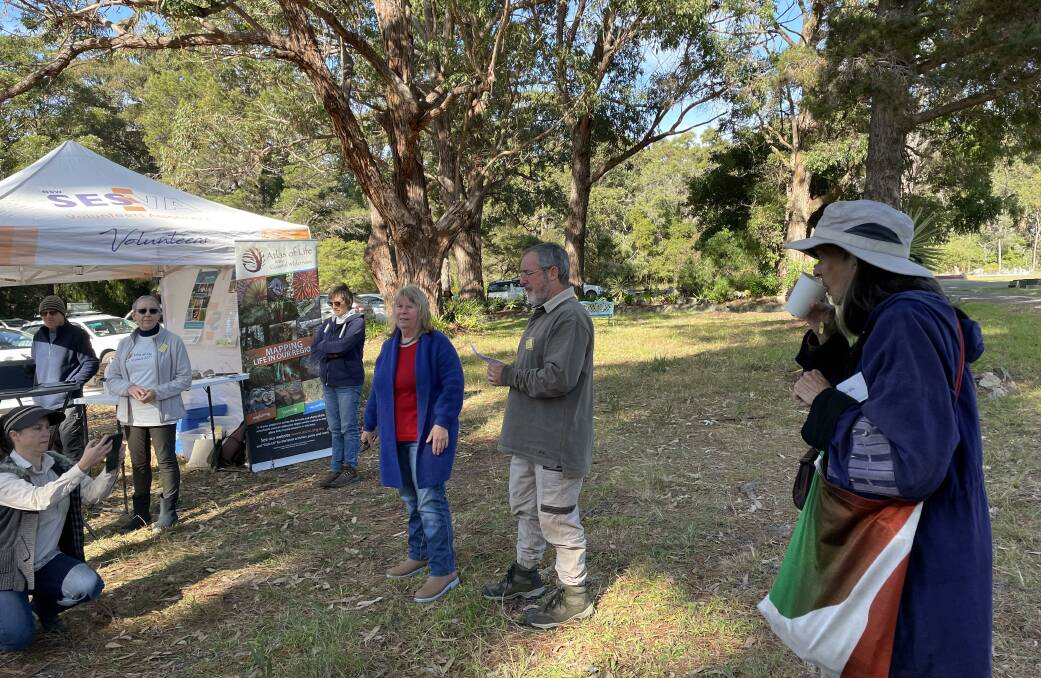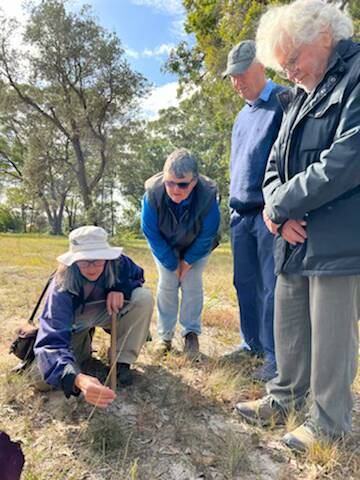
About 70 people went to Bermagui Cemetery on Saturday, July 9, to learn about its history and the flora and fauna living there.
Subscribe now for unlimited access.
$0/
(min cost $0)
or signup to continue reading
It was the third Life in our Cemeteries event run by not-for-profit Atlas of Life in partnership with Bega Valley Shire Council.
Raymond Daly, secretary of Atlas of Life and coordinator of the Life in our Cemeteries events, said they would run in 14 cemeteries across several years.
The reason for choosing cemeteries is they are unique. They have been preserved by fencing them off from cattle grazing Consequently they still have a lot of the native vegetation that pre-dates European settlement.
The objective of the events is to promote the cultural and social history of the area, as well as to promote science and the use of the iNaturalist app.
The app enables citizen scientists to contribute to the gathering of data on local plants, insects, birds and animals. It is a way of recording the area's biodiversity and to help scientists track how it is changing.
On the day, people learnt that a pile of chewed up cones from black sheoaks was evidence that glossy black cockatoos, listed as vulnerable, had been feeding in the cemetery.
Botanical expert Jackie Miles identified four types of orchids in the cemetery's car park area. In combination with previous observations, it shows there are at least six orchid species growing in what many people would describe as a wasteland.

People also heard about the threat of lantana impinging on the northern end of Bega Valley.
Cemeteries have a utilitarian purpose but they are also places of meaning, said local independent historian Dr Fiona Firth.
She explained how much we can learn from the inscriptions on grave stones and memorials. For example, the way the wording on inscriptions has changed shows how our thinking about the afterlife has evolved.
Grave stones inscribed in the 19th century typically featured phrases such as 'safe in the arms of Jesus' or 'rest with the Lord' which reflected their hopes for the afterlife.
Today's memorials are more likely to have phrases like 'always remembered, always loved'.
"So as time has gone on, they have become more secular," Ms Firth said.
Mr Daly said momentum for the Life in our Cemeteries events was growing.
"People are really engaging with them. It is the combination of a natural environment, the ecology and local history," he said.

